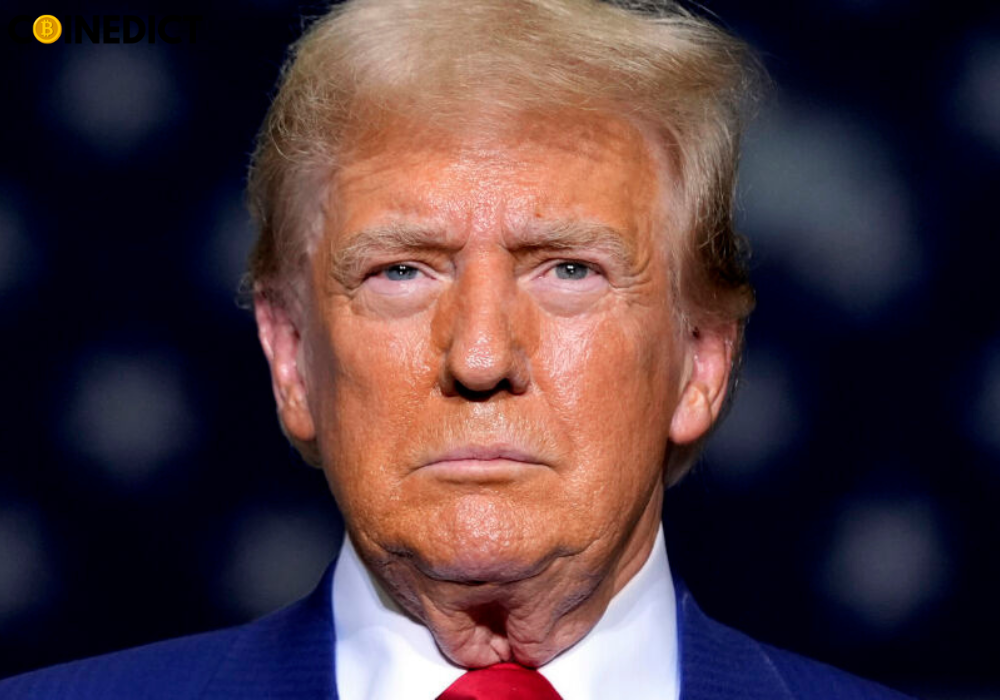The United States government has recently expanded its authority to review foreign-owned cryptocurrency mining operations near sensitive military sites, reflecting growing concerns about the national security risks associated with foreign influence in the domestic crypto sector. This move underscores the government’s commitment to protecting critical infrastructure and sensitive locations from potential foreign interference or cyber threats linked to digital asset mining.
What Does the Expanded Authority Mean?
This expanded authority allows the Committee on Foreign Investment in the United States (CFIUS) to review and potentially block foreign investments in or acquisitions of crypto mining facilities located near military sites. The mandate aims to address the risks that foreign-owned crypto mining operations could pose by being in close proximity to military bases, given the potential vulnerabilities associated with data collection, energy consumption, and cyber risks.
Key Aspects of the Authority Expansion:
- Proximity to Military Sites: The focus is on mining sites near military installations and sensitive locations, where foreign ownership might present a risk to national security.
- Review of New and Existing Sites: CFIUS is empowered to review new foreign investments as well as scrutinize existing sites if deemed necessary for national security.
- Potential Block or Conditions Imposed: The committee has the authority to block transactions or impose conditions on operations to mitigate identified risks, ensuring that any foreign ownership aligns with U.S. national security interests.
Why the U.S. Is Concerned About Foreign-Owned Crypto Mining
The rise in cryptocurrency mining has created significant demand for computing power and energy resources, which raises concerns when these operations are located near sensitive areas. For the U.S., foreign involvement in these sites poses several potential risks:
1. National Security Concerns
- Proximity to military sites could allow foreign entities to engage in activities that might interfere with or observe military operations. There is also concern about the physical presence of foreign operators near such facilities, which could be exploited for espionage or surveillance.
- Foreign ownership increases the risk that data or information from mining operations could be accessed or leveraged by other governments, posing cybersecurity and surveillance risks.
2. Data and Cybersecurity Risks
- Crypto mining operations require extensive computational resources, which are connected to local power grids and internet infrastructure. Foreign control over these operations could introduce vulnerabilities that may be exploited, leading to potential cyber threats.
- There is also the possibility of sensitive data leaks from such operations, especially if they are located near military installations. The data-intensive nature of mining makes it a potential target for infiltration or data mining by foreign interests.
3. Energy Infrastructure Concerns
- Mining operations consume substantial amounts of electricity, which can strain local energy infrastructure. With foreign entities in control, there are concerns about the prioritization of energy resources, particularly if these operations could compete with or disrupt power allocation to critical defense facilities.
- The U.S. government aims to ensure that energy usage around sensitive locations remains secure and that foreign interests do not compromise the stability of local power grids.
Domestic Dominance in U.S. Crypto Mining
Most crypto mining facilities in the U.S. are domestically owned and operated, with key states like Texas and Georgia hosting large mining centers. These states offer favorable conditions for mining, including relatively low energy costs and supportive regulatory environments, making them attractive for both domestic and foreign crypto companies.
Key U.S. States Leading in Crypto Mining:
- Texas: Known for its vast energy resources and crypto-friendly regulations, Texas has become a major hub for crypto mining. The state’s reliance on renewable energy sources like wind and solar power has attracted miners seeking more cost-effective operations.
- Georgia: Georgia is another leading state for crypto mining, thanks to its lower electricity rates and supportive local policies. The state’s infrastructure has been accommodating to large-scale crypto mining operations, leading to the establishment of several facilities.
While most U.S.-based mining operations are domestically owned, the government’s expanded authority signals a cautious approach to foreign investment, especially in light of national security concerns.
Broader Implications for the U.S. Crypto Industry
The expanded authority to review foreign-owned mining sites near military locations could influence the landscape of crypto mining in the U.S. in several ways:
1. Increased Scrutiny of Foreign Investments
- Foreign investors may face increased regulatory hurdles when seeking to establish or acquire mining facilities in the U.S. The added scrutiny may deter foreign companies from entering the U.S. crypto mining market, especially near critical areas.
- Current foreign-owned mining operations near military sites could be subject to reviews, potentially leading to the divestment or reorganization of these sites if national security risks are identified.
2. Incentives for Domestic Ownership
- The expanded authority may incentivize more domestic ownership of crypto mining facilities, especially in high-risk areas. Domestic companies may see increased opportunities as foreign entities face challenges due to security reviews.
- U.S.-owned crypto mining firms may also benefit from potential government support or incentives aimed at fostering a safe and secure environment for the industry.
3. Impact on Foreign Investment Sentiment
- This move could signal to foreign investors that certain aspects of the U.S. crypto market are off-limits due to security concerns. This may impact the appeal of the U.S. as a crypto mining destination for foreign investors, who could turn to other countries with fewer restrictions.
- The focus on national security aligns with similar trends globally, where governments are implementing stricter regulations to control foreign investment in sectors deemed critical to national interests.
Balancing Security with Innovation in Crypto Mining
The U.S. government’s expanded authority over foreign-owned mining operations highlights its commitment to ensuring that national security interests are safeguarded as the crypto industry grows. This development reflects a broader regulatory trend where governments are striving to balance the economic benefits of crypto mining with the need to protect sensitive areas and critical infrastructure.
1. Ensuring Secure Growth of Crypto Mining
- By closely monitoring foreign involvement in mining near military sites, the U.S. aims to foster a secure environment where crypto mining can expand without compromising national security.
- Clear guidelines on where and how foreign entities can operate may also help the industry navigate regulatory expectations, reducing the risk of disruptive regulatory interventions.
2. Potential for Regional Regulations
- As crypto mining operations continue to expand, state and federal governments may consider implementing region-specific regulations to address concerns related to energy usage, cybersecurity, and environmental impact.
- Regional controls and increased cooperation between state and federal authorities could provide a framework that enables safe, responsible mining practices across the country.
Conclusion: A Strategic Move for National Security
The U.S. government’s decision to expand its authority over foreign-owned crypto mining sites near military installations signals a proactive approach to safeguarding critical infrastructure. By granting CFIUS the power to review these sites, the government aims to mitigate risks associated with foreign involvement while encouraging safe and secure growth within the domestic crypto mining sector.
As crypto mining continues to expand in the U.S., this move underscores the government’s commitment to balancing innovation with security. For the industry, the expanded authority highlights the need for compliance and transparency in foreign investments, especially near sensitive areas. For now, the U.S. is taking steps to ensure that crypto mining can flourish within a framework that prioritizes both economic growth and national security.











